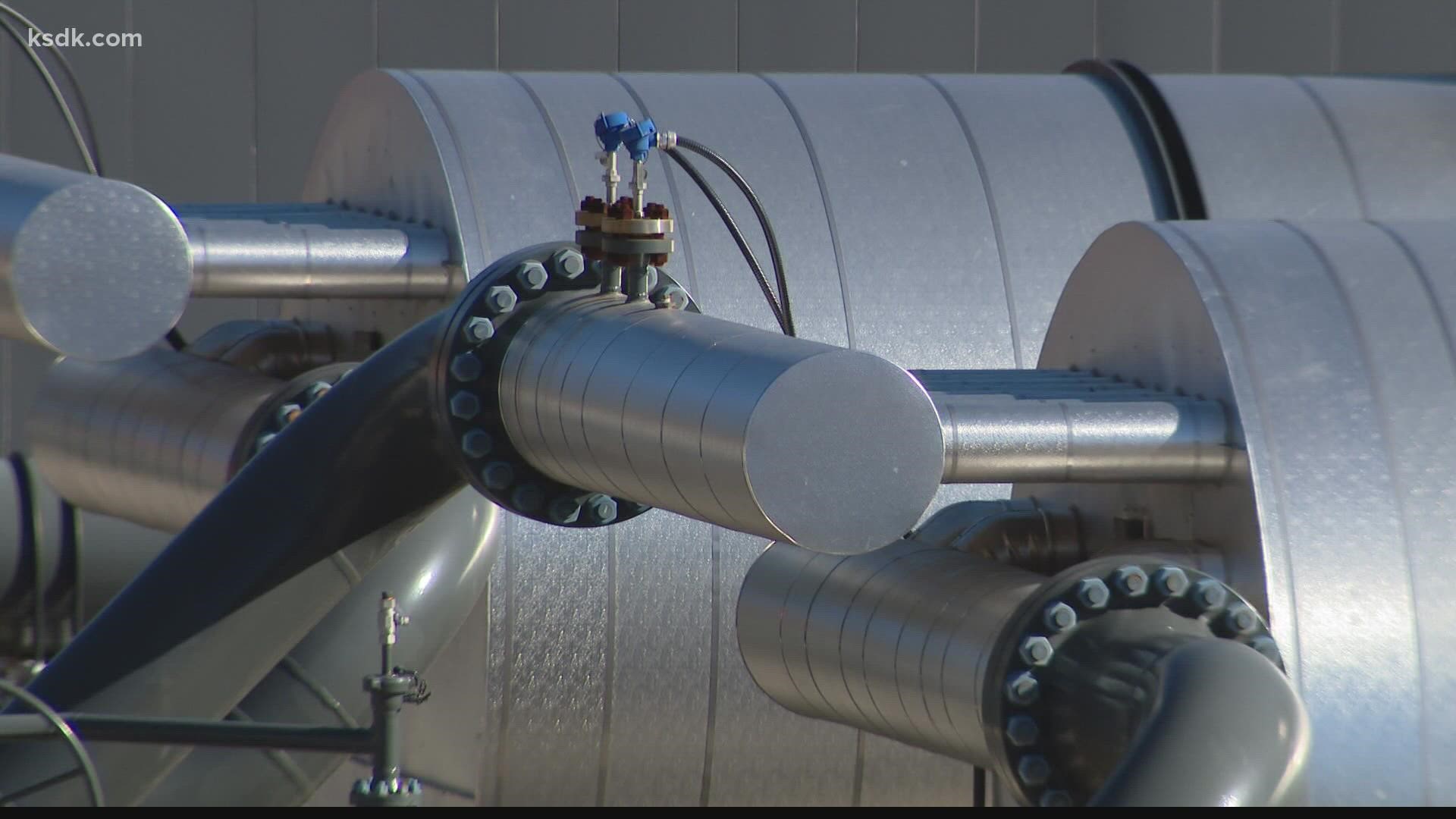ST. LOUIS — One of eastern Missouri's largest natural gas providers was dealt a legal blow after the U.S. Supreme Court declined to hear Spire's appeal of a lower court's decision putting the future of a 65-mile pipeline in jeopardy.
In the short term, the SCOTUS decision won't impact customers since the pipeline is still up and running.
However, there could be significant impacts on gas service if the company can't prove the pipeline was needed in the first place.
When a panel of judges on a Washington D.C. court overturned the Federal Energy Regulatory Commission’s approval of the 65-mile SPIRE STL Pipeline in June of 2021, Spire attorney Sean Jamieson made the company’s intentions clear.
“We would pursue all legal and regulatory paths to ensure the safety and security of the people in St. Louis,” said Spire attorney Sean Jamieson.
That path became a little more difficult after the Supreme Court declined to hear Spire’s appeal.
“The Supreme Court decision, although we are disappointed, it was not unexpected,” said Jamieson.
“A unanimous D.C. Circuit ruling found serious flaws in the Federal Energy Regulatory Commission orders approving the Spire STL pipeline, including failing to assess the harms to ratepayers and landowners,” said Erin Murphy, senior attorney for Environmental Defense Fund, which is a party to the case. “Today’s Supreme Court decision means the D.C. Circuit decision to overturn approval of the pipeline will stand undisturbed, and FERC will continue to reassess the project while ensuring it is protecting ratepayers, landowners, and local communities. FERC has already issued ongoing emergency authorization of the pipeline while it re-evaluates its decision consistent with its responsibilities under the law.”
“Our estimate is that up to $300-million in gas costs were saved because of the Spire STL pipeline,” said Jamieson.
Despite the legal back and forth, FERC gave Spire a temporary certificate to continue operating the line in December of 2021.
“They found that without the pipeline there would be an emergency, or a crisis, in eastern Missouri,” said Jamieson.
Currently, the pipeline is still operating as FERC conducts an environmental review, which is set to end in October.
“The direct operational emissions from this pipeline are minimal,” said Jamieson.
While Jamieson believes that plays into the company’s favor, company officials admit they don’t have a Plan B at this time.
“If the gas from Spire STL pipeline is removed there will need to be construction of additional pipelines to serve this region and that could take years,” said Jamieson.
It’s expected that FERC will release its final decision on the Spire STL Pipeline sometime in early 2023.
As it stands Spire will be allowed to continue to operate the pipeline as FERC continues its review process, which is expected to wrap up sometime in early 2023.

